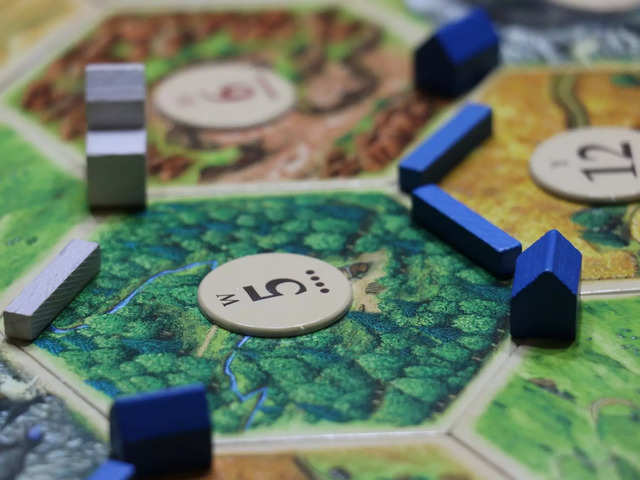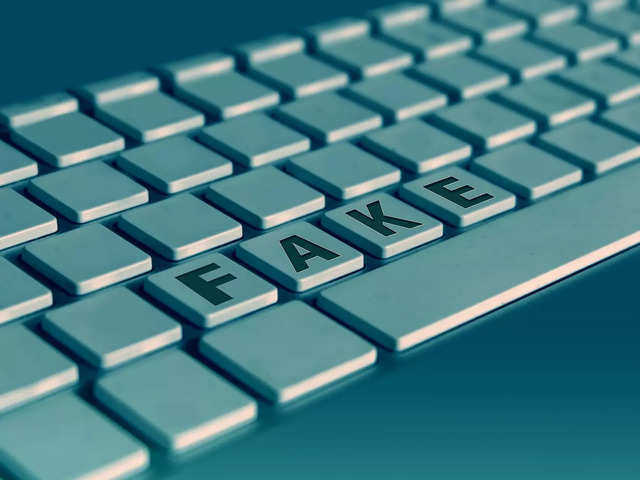
To advertise or not to advertise during the second Covid wave? Experts give us the answerCanva
Should brands put their advertising on hold to give consumers space during the second wave of COVID in India or use it ...
Apr 29, 2021, 10:00 IST
brands
Experts share the ideal ways in which brands can advertise during the second Covid-19 wave in India
Apr 29, 2021, 10:00 IST
Should brands put their advertising on hold to give consumers space during the second wave of COVID in India or use it ...
- As of April 29, there are 18 million active Covid cases in India.
- To help our country grapple with the second wave of Coronavirus pandemic, many brands have stepped forward to do their bit.
- Apart from financial aid, there’s another powerful tool that brands can use today -- advertising. It can influence consumers to act and remind them that we are in this together.
- We reached out to experts to understand how should a brand use its marketing tools today: should they halt their advertising to give consumers space or launch empathetic campaigns as a reminder of togetherness and better tomorrow.
However, the country now is in the midst of one of the worst calamities it has faced in recent times. Our country’s healthcare system and our brave healthcare workers continue to be under tremendous pressure. It has impacted our mental health because we are living in constant fear of us or someone close to us contracting the virus. People are either mourning someone’s loss or dealing with the anxiety that they might have to, soon.
Despite the despondency in the air, citizens have taken it upon themselves to help each other out. Many brands and organisations have also come to our rescue. They are using their social media reach to amplify requests for hospitals beds and oxygen supply. They have also donated money to government bodies and NGOs.
There’s another powerful tool that brands can use today -- advertising. It can influence consumers to act. Apart from facing the truth of what’s happening around us, we need empathy and kindness to get through this tough phase. It is only in socially-distanced unity and togetherness that we can find courage to face the reality. Consumers also need compassion, more than ever today. They need brands they follow to set an example and encourage them. Afterall, they are a huge part of our country.
Many brands, however, have chosen silence to give their consumers enough space to heal. A few are using their social media to help everyone out -- left, right and centre. Some have chosen to focus on the fact that consumers still need products and services to survive and have continued advertising like nothing has changed. At the same time, these ads remind us of good, old days and serve as a great escape from the grim reality.
So, we reached out to experts to understand how should a brand use its marketing tools today. Here is what they had to say:
Karthik Srinivasan, Social Media Expert and Independent Brand Consultant:
I would say that silence is definitely not the best way for brands now. It could be construed as disinterest or worse, callousness. A better way could be one of the two, or both, depending on the size and scale of the brand.
1. Make yourself directly useful - use your reach: Brands have media budgets, social handles with a sizable following, and access to media. They could put this to good use by helping in the coordination of essential medical supplies including oxygen. This would take time, effort, and coordination, but it would also be a visible example of the brand trying to help as against one donation done once and announced. This is particularly useful for brands that cannot reposition their own products/services as a way to help people manage their lives during a pandemic. For instance, a movie production house. Or a fashion brand. Or a Cola brand. Or IPL teams.
2. Make yourself indirectly useful - use your product/service context: This is useful for brands that can reposition their own products/services as a way to help people manage their lives during a pandemic.
For example, a book retailer (or an audiobooks retailer, like Audible) could make a selection of their repertoire free/cheaper and pick those titles that can calm minds, or those that can help engage children (helping the parents who are recuperating). Or a retailer or producer of audio equipment could become a curator of calming music, podcasts, or audiobook titles. This way, they are not selling their products, but merely making them a backdrop to a far more contextually useful curation effort that is related to their category. Or food brands that could help offer recipes to gradually overcome the loss of sense of taste and smell.
Nice idea - "A cook book to inspire those experiencing changes in taste and smell as a result of Covid" (free digit… https://t.co/UU5s258eOf
— Karthik (@beastoftraal) 1619440585000It is important that brands do not force-fit or contort themselves to become relevant within the COVID-19 context - that would be seen through and exposed very soon, and backfire badly. The connection has to be entirely natural and more importantly, purposeful.
Lloyd Mathias, Business Strategist, Investor and former APAC Marketing head of HP:
I think a brand cannot completely isolate themselves from the reality on the ground. Given the grim situation because of the Covid surge, it is appropriate that commercial objectives take a back seat and a brand communicates sensitively.
Staying silent is a safe and acceptable strategy but if a brand can help people cope in any way appropriate, this will be a good time to do so. This could mean using the brand’s assets – communication spends or social media assets to communicate help messages or using logistical resources to move healthcare related equipment. These need to be devoid of any commercial motive or seem like virtue signalling. So staying sensitive to large humanitarian tragedy is paramount.
Also, collaborating with a competitor on any social project would seem like a mature and positive thing to do. Many fondly remember Nike’s support to the Back Lives Matter movement when they said ‘For once, don't do it.’ Seeing this heartfelt message, Adidas shared the sentiment saying together we can move forward and change. This worked wonderfully for both brands.
Vani Gupta Dandia, Founder, CherryPeachPlum Growth:
What can brands do in all of this crying chaos? Quite simply help, for no other reason, but for humanitarian reasons.
Corporates can respond in one of three ways:
1) Support the efforts to fight the virus directly e.g. by providing infrastructure (ambulances, cold chains for supply chain management), volunteers, disseminating information on hygiene protocols etc.
Last few days, for example, OYO has converted its rooms into isolation centres. Can an Airtel or a Truecaller take on the task of separating fake vs real/verified numbers amidst the zillion different covid related forwards? Can a company set up a leasing system of oxygen concentrators? Patients need one for only a few hours, at best a few days. Why don't we have them available on hire? Saves consumers money and lives, while those who lease can actually make more money than through a single sale. Can some company come forward to set this up?
2) Providing support to those impacted by the pandemic e.g., smartphones to students for online learning, community food kitchens in slum areas to support daily wage labourers etc; and
3) Helping NGOs e.g. Give India by providing cash and expertise.
Will it reap any benefit on brand equity or more sales later... Who knows? But my bet is it will! People are hungry for stories of good amidst this grim desperation. And one great way of standing out just now is to simply come forward with courage and say "Screw strategy, let's help where we can.” It's war -- just of a different kind. Not all good work by companies need be categorised as 'purpose-driven' or 'CSR'. When brands stand up at such times people remember. It doesn't need to have any link at all with the brand proposition.
But I see that there is an ongoing debate on whether IPL should be pulled down, given the gravity of the ongoing crisis. I don't see why it shouldn't go on. All of us as consumers need to keep our sanity too - and cricket is a welcome distraction. And because we're watching cricket, advertisers will continue to sell their wares - and I don't see why not. Normal life also must go on to the extent possible. Lives and livelihoods both matter.
Ronita Mitra, Founder and Chief Strategist, Brand Eagle Consulting:
While we are faced with a large scale and challenging humanitarian crisis, corporates and brands, as responsible citizens, should consider contributing actively in order to alleviate the situation. This phase is not about advertising products and services unless it is for a new category which needs immediate awareness building. Actions, especially empathetic ones, that contribute towards bettering the lives of people during these challenging times, will have far more meaningful impact than mere communication. Corporates have the clout to make a significant impact and they should consider diverting their CSR funds towards helping citizens in various possible ways - be it funding supply of medical products, food for the lower socio-economic classes who are impacted by the lockdowns, education for children who have been impacted by the inadequate infrastructure at home, facilitating vaccination for those who are not adept with the systems, and much more.
Brands can use social media and other media platforms to communicate the same. Meaningful actions during these times will have a memorable impact on the consumer psyche too and will help strengthen consumer connect in the long term more than anything else now.
Harish Bijoor, Brand-strategy specialist & Founder, Harish Bijoor Consults Inc:
In moments such as these, very very tough times when fear and chaos is the norm, I do recommend a dignified brand silence. Brands must not add to the clutter of personal communication. Staying away from the melee of tumult is a good thing brands with commerce on their minds can do. At least for now.
Also Read

From CRED to Google, here’s how brands are helping India fight against COVID-19
Should brands put their advertising on hold to give consumers space during the second wave of COVID in India or use it to bring about change?
INSIDER INTELLIGENCE REPORTS







